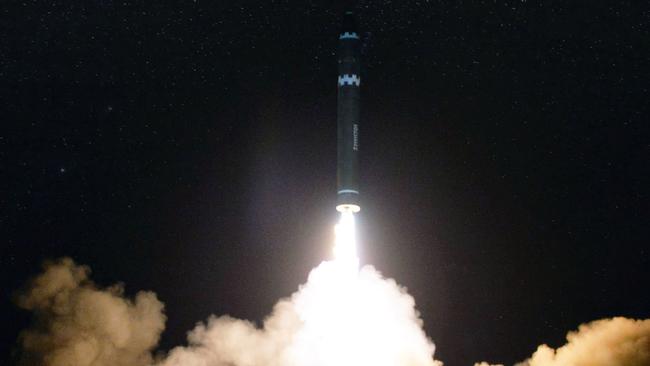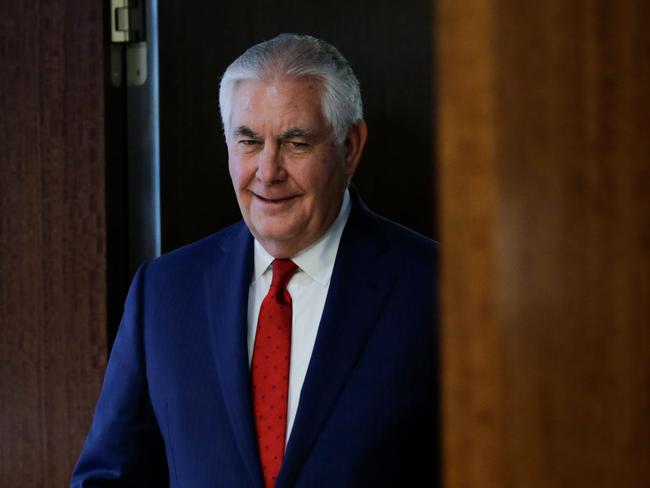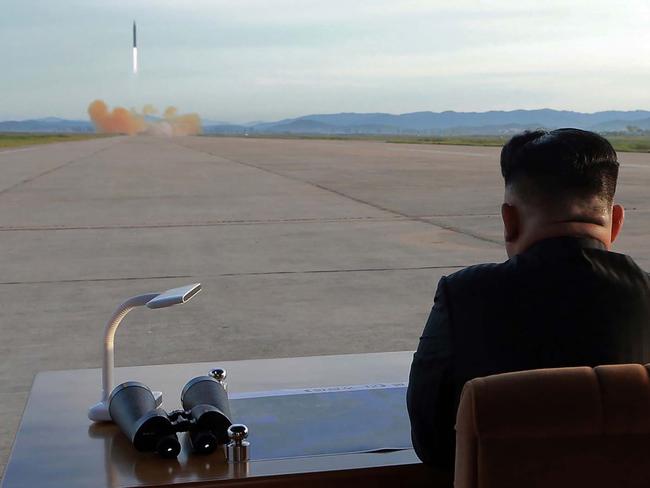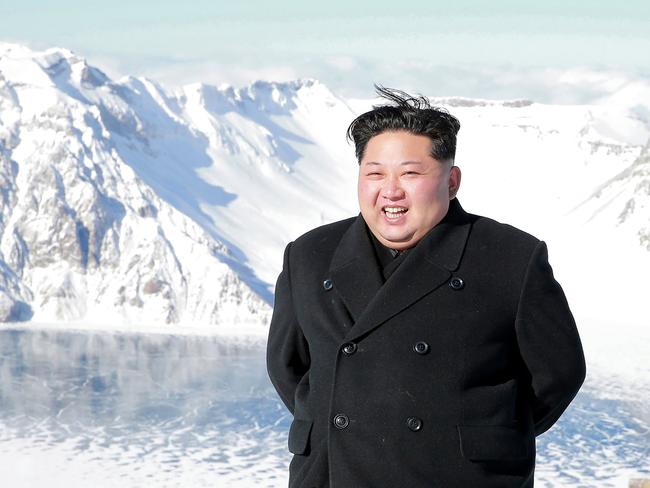North Korea nuclear weapons up for grabs if regime falls
THE United States has revealed what would happen if it entered North Korea and what its first objective would be after entering.

WASHINGTON has told China how it plans to secure North Korea’s nuclear arsenal in the event of a Kim regime collapse.
The plan, which aims to avoid a clash between the rival powers, was revealed by US Secretary of State Rex Tillerson last week and would see America enter North Korea searching for weapons.
During a talk to the Atlantic Council last week, Mr Tillerson said the Trump administration has provided assurances to Beijing that if US troops landed in North Korea they would do their job, but would not stay.
The comment aimed to reassure China that the United States would not occupy North Korea if the Kim regime fell.
Beijing views North Korea as a buffer state preventing the 28,500 US troops in South Korea from camping on its doorstep.
Mr Tillerson said the US and China “have had conversations about in the event that something happened — it could happen internal to North Korea; it might be nothing that we from the outside initiate — that if that unleashed some kind of instability, the most important thing to us would be securing those nuclear weapons they’ve already developed and ensuring that they — that nothing falls into the hands of people we would not want to have it.”
He said the US was not seeking regime collapse or that the country planned to send forces north of the demilitarized zone.

“We have had conversations that if something happened and we had to go across a line, we have given the Chinese assurances we would go back and retreat back to the south of the 38th parallel,” Mr Tillerson said.
If Mr Tillerson’s statement is true this suggest a major shift in Chinese policy as Beijing comes under pressure to rein in its Korean War ally.
Beijing had refused US calls to discuss the possible collapse of its neighbour for years, but according to Mr Tillerson top US and Chinese military officials have finally met to discuss the once-taboo topic.
New York-based Political analyst and Asian specialist Sean King told news.com.au he wasn’t sure what to make out of Mr Tillerson’s remarks.
Mr King, a senior vice-president of Park Strategies, said Mr Tillerson’s thinking appears out of sync with that of US President Donald Trump.

“What’s more, wouldn’t a collapsed North Korea be South Korea’s domain?,” he said.
“Wouldn’t it be Seoul’s call what to do in this case? If South Korea did want our (US) help in this admittedly still very hypothetical scenario, we might consider drafting former Senators Sam Nunn and Richard Lugar out of retirement given their landmark expertise in having helped secure loose nukes in the former Soviet Union 25 years ago.
“Otherwise, I think we’re getting ahead of ourselves here.”
Mark Fitzpatrick, the executive director of the International Institute for Strategic Studies office in Washington, said there were still risks China and the US could end up at logger heads over the arsenal.
“Just as the US and South Korea have an operational war plan to seize the weapons, so, presumably, does China,” he told Newsweek.
“To avoid any potential conflict in achieving this mission, the US has repeatedly sought prior consultation and co-ordination with China, which has refused. So a clash over the arsenal remains a real possibility.”
Bonnie Glaser, senior adviser for Asia at the Washington-based Center for Strategic and International Studies, said Beijing has long refused US requests to discuss North Korea contingencies because it “assessed that near-term instability was unlikely”.

“They feared that the talks wouldn’t be kept secret, Pyongyang would find out and their relations with North Korea would deteriorate to the point of becoming hostile,” Ms Glaser said.
China’s foreign ministry would not confirm Mr Tillerson’s account of the talks or openly discussed any such plan.
Oriana Skylar Mastro, a scholar at Georgetown University and the American Enterprise Institute, said co-ordination with the US is basically non-existent” and the talks are likely “not yet at the operational level”.
“Even if China was considering this possibility, they still couldn’t discuss it with the US because China still has to consider the North’s attitude,” she said.



